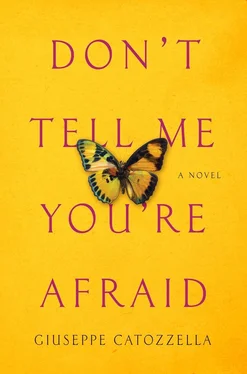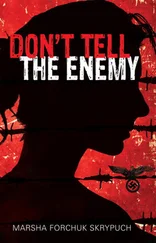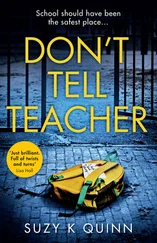A few hours after Alì’s departure, Hodan returned home. With only the few belongings she had brought with her after the aroos ceremony. Not many, just the essentials.
When we saw her appear in the courtyard with the little red cardboard suitcase that many years ago had been Hooyo’s, Hodan said simply: “I’m back. Hussein left.”
Hooyo rushed to embrace her, and we all followed her.
In the blink of an eye I’d lost my best friend and gotten my sister back.
But fate could do whatever it wanted with me. I knew exactly where I was headed. The wind has always had a tough time with my skinny body. It’s me who has always moved it, as I ran by. It was me who had learned to use the wind as a driving force behind my back, to make me fly.
What I did that morning was embrace Hodan, crying with joy and shedding the same bitter tears that were still flowing for Alì.
Then right away I started training again.

I HAD BEEN LEFT WITHOUT a coach at age fourteen and six months away from the most important race of my life, the one in Hargeysa. The one I had to win if I was to become the fastest and be able to go to Djibouti to run in the name of my country for the first time. The very thought of it made my head spin; I had to do it at all costs.
There was no one to clock me anymore, no one to make me do the exercises for my legs and arms. No one to check if I cheated on the reps or the abdominals.
Every day since Alì’s departure I had wondered where he was, what he was doing. As I ran I heard his voice buzzing in my ears. Don’t do this, don’t do that. Lift your heels more, keep your arms in close. Try to coordinate your breath with your stride. And smile! When you reach the finish line, smile, Samia!
I never did. I didn’t care about smiling. By the end of a race I was exhausted, and there were a ton of things I’d done wrong. I knew there was room for improvement, and I just wanted to work on that. When I passed the finish line, I wasn’t even able to savor the victory. I began thinking about the next race, mentally correcting my mistakes.
Besides that, I was also a little afraid. Afraid that there might be someone in the stands who didn’t like young girls to flaunt themselves. Alì, on the other hand, pressured me each time and insisted that it was important to smile. “It’s like acknowledging the spectators,” he said.
In the evening before going to sleep, with the ferus still lit, I lost myself staring at Mo’s photograph. I gazed at him and asked him questions. Said teased me, saying that I was talking to a piece of paper.
“Samia, are you still talking to that newspaper?”
“I’m not talking to any newspaper,” I retorted irritably. Yet that’s really just what I was doing: talking to a worn-out scrap of paper.
“Ink stains, you know, but it doesn’t talk.” Said kept it up.
When the others all laughed, I woke up from my trance. Then Hodan gave me a kiss on the forehead and told me not to get mad, that Said was only joking.
True, he was joking, but he was right.
I looked at Mo in that photo where he was about to cross the finish line, his eyes wide open and frenzied from the effort yet serene and satisfied with another victory, and I whispered to him to reassure me. To tell me that one day it would be the same for me. That I too would win with that look of hope and serenity in my eyes.
Still, winning serenely seemed unlikely to me. Each victory was also a sin that I knew displeased a lot of people. Naturally I did everything I could not to let it bother me; I went my own way, not caring what others thought, not smiling either.
But the truth was that Alì’s absence made it all seem less carefree, less of a game; running had taken on a different feel, even though Hodan was back to put me to sleep with her velvety voice.
During those months the only thing I did besides going to school was run. I trained as much as seven hours a day. I ran in the courtyard, and after curfew, as soon as I could, I went out and ran through the streets.
The burka over my head and under it the terry headband to soak up the sweat.
Running in that getup was impossible. I stumbled repeatedly in the long garment, and the heat buildup under that confining black garb brought me close to fainting each time.
But all I could think about was Hargeysa, the race of my life, the one that would change my destiny. I had to win; it was my only chance to become a professional, even though that word has never meant much in Somalia. No one has ever earned a red cent through sports. But I hoped that I would at least have the chance to compete in major races, to represent my country in the world and to run for the liberation of Somalia while Somalia thought I was playing by its rules.
Two days a week I went to help Hooyo at the vegetable stand, to earn a few shillings that would help pay for my bus ticket to Hargeysa. Hodan went with Hooyo on two other days and Ubah the last two, and they too gave me something whenever they could. Their contribution to freedom.
The Islamic Courts administration had prohibited Hodan and her group from rehearsing and playing in the city.
They could no longer go to the concert hall and were forced to meet in the cellar of a restaurant up north, toward the Shabelle River. If they were found again in the concert hall near the old port, they would be shot.
When I returned, drenched in sweat, from my run around the block at curfew, Hooyo looked at me strangely, as if I were a rare animal.
“Who did you take after?” she asked me, slipping off my burka and running a hand over my damp hair as she stood in the corner by the burgico preparing supper. Each time it was the same routine. As soon as she saw me duck in from under the red curtain, she smiled at me with her usual tenderness. Then, when I went over to her, she turned serious.
“Who did you take after, huh, little Samia?” she said in that gentle voice of hers. I’d grown as tall as her, and I noticed that her bright eyes, deep as a bottomless well, were being framed by wrinkles all around.
“I take after Aabe,” I replied.
She looked at me, took my face between her hands, and said: “How beautiful you are, Samia. By now you’re a woman. You’re the most beautiful one in the family.”
Then she folded the damp burka, untied the laces of my sneakers and told me to go rinse off and rest my feet.
It was like a ceremony. The disrobing of the beautiful, wacky daughter.
But at that time all I thought about was conserving my energy for the following day’s training. I couldn’t concentrate on anything else.
The day of my fifteenth birthday was two weeks before the race, and Said gave me a stopwatch.
I never knew where he got it or how much it cost. The fact is he came to me and said: “This is for you, warrior Samia.”
It was the first time he’d called me that; usually Said came up with a hundred different names, all to make fun of me. But that day he called me “warrior,” as Aabe sometimes called me, maybe because I was growing up: I was fifteen, and fifteen is a grown-up age. Then he said he hoped that stopwatch would someday mark the women’s speed record for our country.
“I promise you, Said,” I told him, kissing his cheek.
I had never had a stopwatch. Alì used to measure my time by calculating the seconds with his battered old wristwatch. The strap had been missing for a long time; only the dial remained. Until the day they stole that too from him.
He was on the corner of the national monument waiting for me to reappear from the narrow street across the way, when he was approached by a group of three Abgal boys whom he had never seen before; they must not have been from our neighborhood, and who knows what they were doing there? Alì was standing in the shade, leaning against the trunk of an acacia tree, when the three started insulting him.
Читать дальше





![Ally Carter - [Gallagher Girls 01] I'd Tell You I Love You But Then I'd Have to Kill You](/books/262179/ally-carter-gallagher-girls-01-i-d-tell-you-i-lo-thumb.webp)







